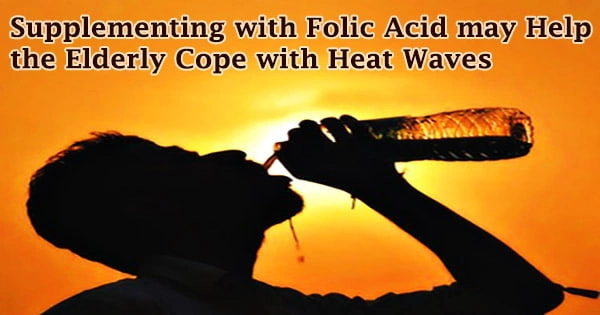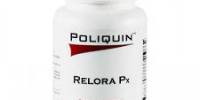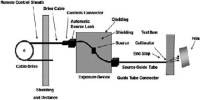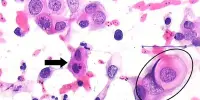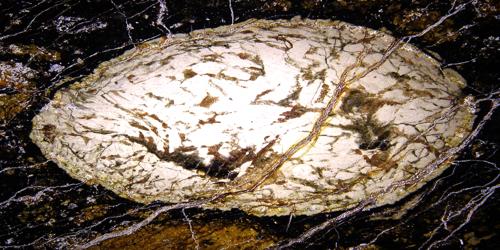According to Penn State researchers, supplemental folic acid can promote blood valve dilatation in older persons, suggesting that folic acid supplements could be a low-cost option for helping older adults boost cutaneous blood flow during heat waves and minimize cardiovascular events.
“We know that when older adults are exposed to heat, their bodies are not able to increase skin blood flow to the same extent that young subjects do, and as a consequence, older adults are at a greater risk for cardiovascular events, such as heart attack and stroke, during environmental heat waves,” said Anna Stanhewicz, a post-doctoral fellow in kinesiology.
According to Stanhewicz, this is due in part to aging blood vessels that are unable to generate enough nitric oxide. “When young, healthy people are exposed to heat, their bodies increase blood flow to the skin, and this increased flow, combined with sweating, helps to cool the body down.”
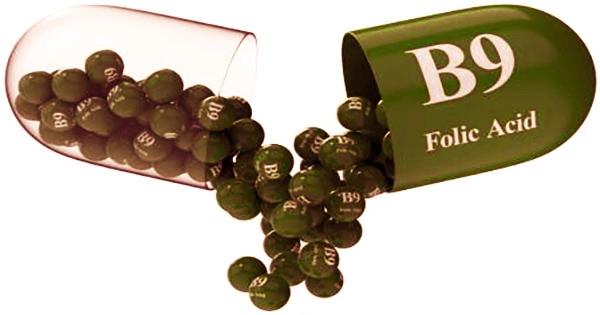
A B vitamin is folic acid. It is used by our bodies to create new cells. Consider your skin, hair, and nails. Every day, new cells are formed in these and other regions of the body. Folic acid is a synthetic (i.e., non-natural) type of folate that is found in supplements and fortified foods such as rice, pasta, bread, and some morning cereals.
The bottom line is that folic acid supplementation increased nitric oxide production in older blood vessels.
Anna Stanhewicz
The chemical nitric oxide is created by blood vessels utilizing an enzyme that needs the tetrahydrobiopterin BH4 bioavailability to diminish with aging, according to Stanhewicz.
Stanhewicz and colleagues discovered that giving BH4 to elderly individuals caused them to create more nitric oxide in a prior study. Because folic acid enhances BH4 bioavailability in the body, researchers assume that folic acid improved nitric oxide synthesis through raising BH4, according to Stanhewicz. The findings were published in the journal Clinical Science on the internet.
Despite their differences, the words “folate” and “folic acid” are sometimes used interchangeably. Folate is a broad word that refers to a variety of vitamin B9 forms.
“The bottom line is that folic acid supplementation increased nitric oxide production in older blood vessels,” Stanhewicz said. “In the past, studies conducted in our lab showed that we can increase nitric oxide production, and then consequently reflex skin blood flow, in older adults by giving them an expensive pharmaceutical. So in this study, we wanted to test that again, but with an inexpensive treatment that might work the same way.”
Folic acid is an excellent dietary supplement. It is more stable than other forms of folate found in natural foods. Natural dietary folates are quickly broken down by heat and light. Because many fortified goods, such as bread and pasta, are cooked, folic acid is more suited for food fortification
Researchers looked at relatively healthy elderly people to see if aging had any effect on their cardiovascular health.
Localized heating and whole-body heating were the subjects of two separate investigations. The researchers employed two intradermal microdialysis fibers to administer folic acid solution locally to the blood vessels in the skin for the local heating investigation.
“In this study we found that when we locally increased folic acid availability, those blood vessels produced more nitric oxide than the blood vessels at the control site,” Stanhewicz said.
To serve as their own controls, volunteers were given both folic acid and lactated ringer’s solution, a placebo, at randomized places on their arms.
The participants in the whole-body heating research consumed 5 mg of folic acid or a placebo once a day for six weeks. Because of earlier findings and pilot testing, the researchers picked this therapy regimen. All of the experiments were carried out in a temperature-controlled facility with the individuals laying down and the experimental arm supported at heart level. They employed a water-perfused garment that covered the complete person save the head, hands, feet, and forearms to regulate skin temperature.
“In the future, it would be interesting to study whether folic acid can also improve vessel function in people with clinical cardiovascular disease, and to try to determine if people who have taken folic acid supplements throughout their life have better vascular health compared to people who do not,” Stanhewicz said.
Lacy M. Alexander, assistant professor of kinesiology, and W. Larry Kenney, Marie Underhill Noll Chair in Human Performance and professor of physiology and kinesiology, are also contributors to the study.
“In my opinion, this series of studies epitomizes translational research,” Kenney said. “Through systematic, stepwise advances in our knowledge, Anna was able to identify a cost-effective way to potentially improve vascular health for a large number of individuals.”
